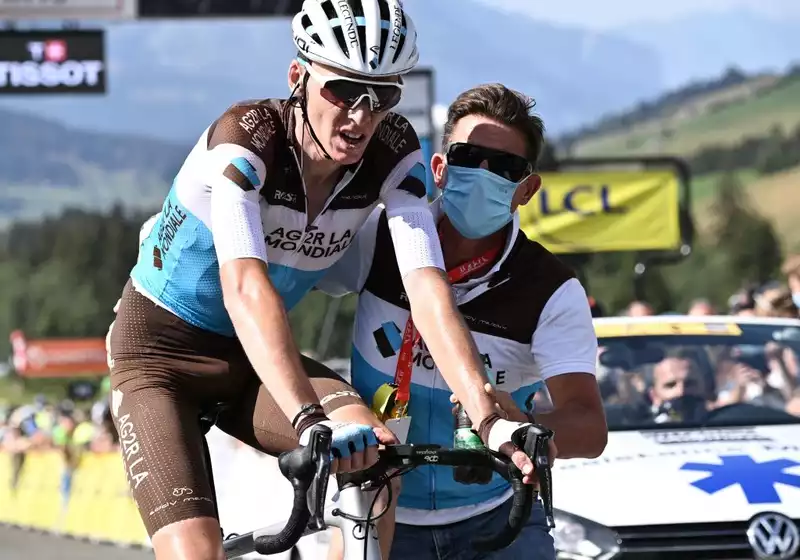The UCI announced Thursday that it has officially adopted a protocol for the rapid evaluation of sports-related concussions (SRC), especially for "fast-paced cycling events such as road cycling."
According to the UCI, concussions account for 1.3 to 9.1 percent of all cycling injuries, and it is difficult to properly diagnose concussions during road, mountain bike, and mass start track events.The new guidelines add training for non-medical staff to spot signs of brain injury, and the UCI will issue symptom cards to help team staff and riders understand what to look for.
The protocol will be led by UCI Medical Director Xavier Biggard and will include sports medicine specialist Jeroen Swart, Mitchelton Scott team doctor Roger Palfreyman, British Cycling's Nigel Jones, Team Ineos doctor Neil Herron, and two medical experts, Thomas Fradischer and Helge Riepenhoff. It will be finalized by the UCI Management Committee in September and officially added to the UCI Medical Rules at the next meeting in January.
"The issue of sports-related concussions was one of my priorities when I arrived at the UCI in 2018, along with the misuse of tramadol," Bigard said in a UCI press release.
"Cycling now has guidelines that define the various stages involved in responding to SRC (initial assessment, diagnosis, recovery, and return to competition). This protocol applies to all disciplines, while taking into account discipline-specific characteristics. This will make it easier to track individual SRC cases and better understand their place in cycling traumatology."
The protocol recommends that first responders at the scene of a crash (usually sport directors, mechanics, other riders and coaches) check riders for obvious signs of concussion (stunned or dazed, balance problems, headache, slurred speech, vision changes) It is recommended that the rider be checked for obvious signs of concussion.
Two or more mild symptoms or even one moderate-to-severe symptom indicates a high probability of concussion and should be further evaluated.
The UCI policy should help prevent situations like the one Romain Bardet (AG2R La Mondiale) had in this year's Tour de France after crashing on stage 13, some 90 km into the race. He could hardly stand, but was put back on his bike and finished the stage.
If concussion is suspected during the initial brief assessment, further evaluation involves a series of questions to assess cognition, such as "How many days are you racing today?" and "Which race are you competing in?" Next, cervical and spinal injuries are assessed, and finally, a simple memory test in which words (e.g., "person, woman, man, camera, television") are repeated.
Other steps include a balance test, a test to see if the rider can repeat numbers backwards, and a delayed recall test of the same memory test words 5 minutes after the initial assessment.
The protocol also specifies how long a rider must wait before returning to the race, depending on the severity of the injury. The full protocol can be read here.


Comments